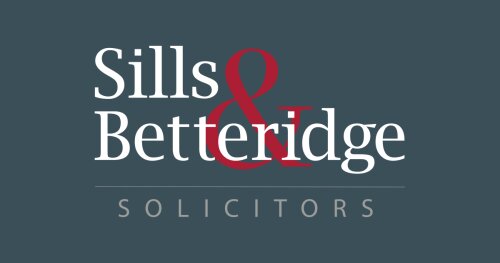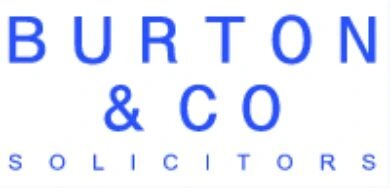Best Drunk Driving Lawyers in Lincoln
Share your needs with us, get contacted by law firms.
Free. Takes 2 min.
List of the best lawyers in Lincoln, United Kingdom
About Drunk Driving Law in Lincoln, United Kingdom
Drunk driving, also known as drink driving in the United Kingdom, refers to operating a motor vehicle while under the influence of alcohol above the legal limit. In Lincoln, this is a serious criminal offence that poses risks to both public safety and the driver's future. The law in Lincoln reflects national standards, with strict procedures in place for police enforcement and severe penalties for those convicted. Awareness and understanding of these laws are crucial for residents and visitors.
Why You May Need a Lawyer
Legal assistance is often essential in drunk driving matters for several reasons. Here are common situations when seeking a lawyer is advisable:
- You have been stopped or arrested on suspicion of driving over the alcohol limit.
- Police have requested a breath, blood, or urine sample after an incident or routine check.
- You are facing a court hearing related to drunk driving charges.
- A driving ban or disqualification could severely impact your employment or personal life.
- You wish to challenge the evidence or dispute the circumstances of the arrest.
- Repeat offences or aggravating factors (such as causing injury) are involved, potentially increasing penalties.
- You are unsure of your rights or the legal process following a drunk driving allegation.
A solicitor with experience in motoring law can assess your case, explain your options, and represent your interests in court or negotiations with authorities.
Local Laws Overview
Lincoln follows UK-wide legislation concerning drunk driving, primarily governed by the Road Traffic Act 1988. Here are the key legal elements:
- Legal alcohol limits: For England, including Lincoln, the legal limit is 35 micrograms per 100 millilitres of breath, 80 milligrams per 100 millilitres of blood, or 107 milligrams per 100 millilitres of urine.
- Police powers: Police officers can stop drivers at random and request a roadside breath test if they suspect alcohol consumption or observe erratic driving.
- Refusal to provide a specimen: Failing to provide a sample when lawfully requested is itself an offence with similar penalties as drunk driving.
- Penalties: Sentences can include driving disqualification (minimum 12 months), fines, community orders, or imprisonment. Penalties increase for repeat offences or when aggravating circumstances exist.
- Rehabilitation courses: Courts may offer drink-drive rehabilitation courses, which can reduce the period of disqualification if successfully completed.
Frequently Asked Questions
What is the legal alcohol limit for drivers in Lincoln?
The legal limit is 35 micrograms per 100 millilitres of breath, 80 milligrams per 100 millilitres of blood, or 107 milligrams per 100 millilitres of urine.
Can I refuse a breath test if stopped by police?
Refusing to provide a breath, blood, or urine specimen when lawfully requested by police is a criminal offence, carrying similar penalties as drink driving itself.
What penalties could I face for a first-time drunk driving conviction?
Penalties include at least a 12-month driving disqualification, a fine, and potentially a community order or imprisonment depending on the circumstances.
Will a drunk driving conviction show on my criminal record?
Yes. Convictions are recorded on your criminal record and can impact future employment, insurance, and travel.
How can a lawyer help in drunk driving cases?
A lawyer can advise you on your rights, assess the prosecution's evidence, explore possible defences, represent you in court, and negotiate for the most favourable outcome.
Is it possible to challenge the results of a breathalyser test?
In some cases, challenges may be made if there is reason to believe the test was improperly administered or the equipment was faulty. Legal advice is essential in such situations.
Can I get my driving ban reduced?
You may be eligible for a reduced ban if offered a drink-drive rehabilitation course by the court and you complete it successfully.
What happens if I was drinking the night before and am stopped in the morning?
If you are found above the legal limit the day after drinking, you can still be prosecuted for drunk driving. Alcohol can remain in your system longer than many people anticipate.
Are there more severe penalties for causing an accident while drunk?
Yes. Causing injury or death while driving under the influence can lead to much harsher penalties, including longer bans and custodial sentences.
How long does a drunk driving endorsement stay on my licence?
A drink driving endorsement typically remains on your driving licence for 11 years from the date of conviction.
Additional Resources
Those seeking more information or support on drunk driving in Lincoln may find the following resources helpful:
- Citizens Advice Lincolnshire: Provides free, confidential guidance on legal rights and procedures.
- GOV.UK: The official government portal with detailed information on drink driving laws and penalties.
- Lincolnshire Police: Offers local information on enforcement practices and public safety advice.
- Drinkaware: A UK charity with educational materials about alcohol and its effects on driving.
- Solicitors Regulation Authority (SRA): For finding accredited solicitors specialising in motoring offences in Lincoln.
Next Steps
If you have been accused of drunk driving in Lincoln, it is crucial to act promptly. Here are the recommended steps:
- Do not make statements to the police beyond providing your name and address until you have spoken to a lawyer.
- Seek legal advice as soon as possible from a solicitor with experience in motoring law.
- Gather all relevant documents and information, such as court summons, police paperwork, and details of the incident.
- Attend all scheduled court hearings and follow your solicitor's instructions carefully.
- Consider completing a drink-drive rehabilitation course if offered by the court.
- Use local resources and support services to address any related alcohol issues or licence matters.
Getting professional legal help increases your chances of navigating the process successfully and mitigating the potential consequences of a drunk driving charge.
Lawzana helps you find the best lawyers and law firms in Lincoln through a curated and pre-screened list of qualified legal professionals. Our platform offers rankings and detailed profiles of attorneys and law firms, allowing you to compare based on practice areas, including Drunk Driving, experience, and client feedback.
Each profile includes a description of the firm's areas of practice, client reviews, team members and partners, year of establishment, spoken languages, office locations, contact information, social media presence, and any published articles or resources. Most firms on our platform speak English and are experienced in both local and international legal matters.
Get a quote from top-rated law firms in Lincoln, United Kingdom — quickly, securely, and without unnecessary hassle.
Disclaimer:
The information provided on this page is for general informational purposes only and does not constitute legal advice. While we strive to ensure the accuracy and relevance of the content, legal information may change over time, and interpretations of the law can vary. You should always consult with a qualified legal professional for advice specific to your situation.
We disclaim all liability for actions taken or not taken based on the content of this page. If you believe any information is incorrect or outdated, please contact us, and we will review and update it where appropriate.









